Shopping for clothing on the internet is hard work. If you’re looking for a puffer coat or holiday dress, you might spend hours scrolling through rows of inventory on Google, Amazon, and Nordstrom before you find one you like.
A new marketplace, Shoptrue, wants to make online shopping more intuitive and fun. Taking a page from Netflix and Instagram—platforms that tailor content to your preferences—Shoptrue uses artificial intelligence to create a personalized shop for each customer. Its algorithm helps curate products based on taste, budget, and fit, selecting from 2,000 brands and millions of products. The platform will be available on the brand’s website, which launches to the public today, as well as an app that will launch soon.
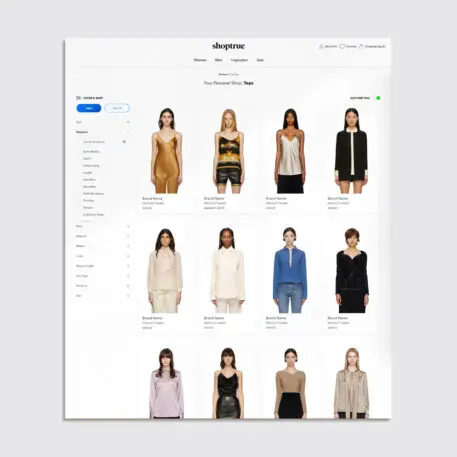
While most e-commerce websites still rely on people to search for what they want, Shoptrue is part of a wave of startups, including Stitch Fix and The Yes (which was recently acquired by Pinterest), that focus on helping consumers discover products they might be interested in. In many ways, this movement is the logical next step in retail: Companies deploy algorithms effectively in many aspects of our lives, shaping how we consume everything from news to music to movies, so it makes sense to apply them to fashion. A platform like Shoptrue makes buying clothes more like scrolling through social media and finding gems you never would have stumbled across on your own.
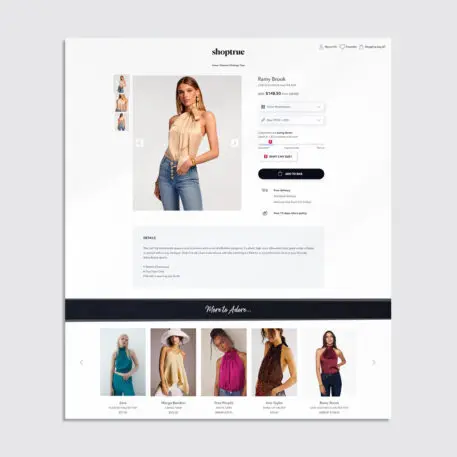
While Shoptrue’s approach has the potential to revolutionize online shopping, it also has its challenges. For one thing, online consumers are notoriously fickle, so it might be hard to get a critical mass of consumers to try a new marketplace and stick around long enough for the technology to learn their preferences. More broadly, using algorithms to identify a consumer’s style can be hard because sartorial tastes are idiosyncratic and change frequently, based on the fashion cycle. And many people use apparel to express their identity. It’s worth asking whether part of the magic of fashion disappears when algorithms replace the process of selecting our own personal style.
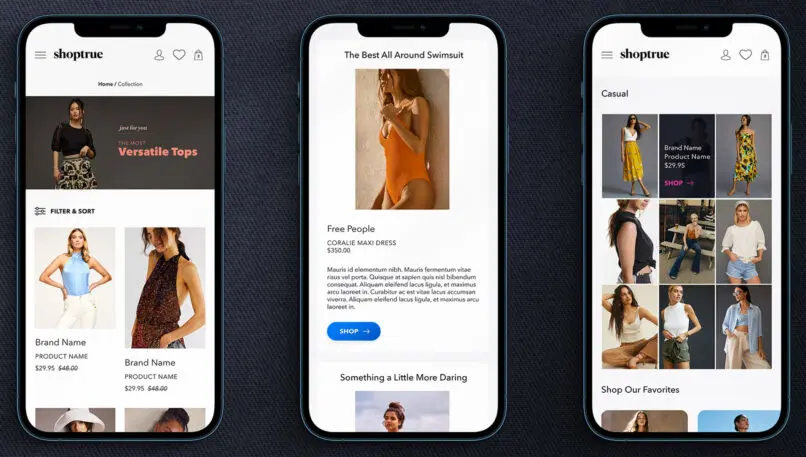
A Dream Team
Shoptrue is the brainchild of Romney Evans, an e-commerce veteran who previously cofounded True Fit, a startup that uses data to help consumers find better-fitting garments. Evans has assembled an all-star team to launch Shoptrue: He’s hired John Lashlee, a former data scientist at Netflix and LinkedIn, to be VP of data science, and Brandon Holley, former editor in chief of Lucky, Jane, and ElleGirl, to be chief fashion officer.

When users first arrive on Shoptrue, they are given a short quiz where they identify brands and looks they like. Then, they’ll gain access to their personalized store. My store had several different categories, like comfy sweaters, new denim, fall jackets, and boots. Browsing through each category, Shoptrue seemed to immediately get my style.
As a new mom, I’m not currently in the market for stiletto heels, but I have been interested in chunky, comfortable boots. The site suggested some Doc Martens and Isabel Marant boots that caught my eye. There were also some boots that didn’t interest me, like orange Ulla Johnson heels and a strange Croc clog boot hybrid. The interface is easy to use and after the initial quiz, users train the algorithm simply by clicking on products that are interesting to them. “The catalog you see when you first enter the site is the starting line, not the finish line,” says Evans. “As you interact with the product, the system learns your tendencies and gets better with time.”
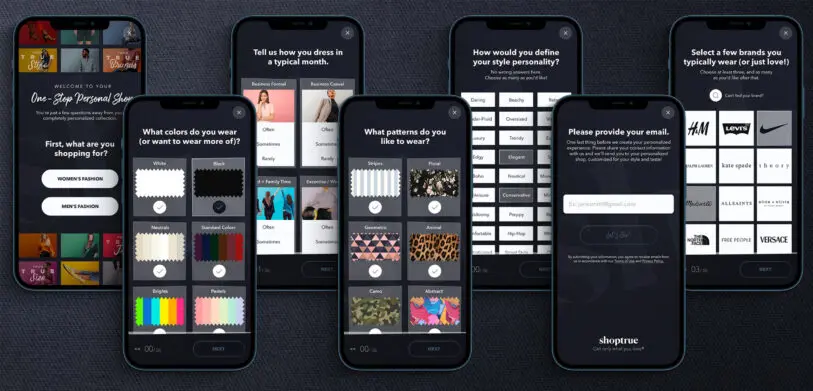
Algorithms Plus Human Curation
Evans wants the experience on the site to be reminiscent of Netflix, allowing you to discover new brands and products you like that you might never have searched for. But at the same time, he believes that for Shoptrue to be successful, it can’t rely entirely on algorithms and artificial intelligence.
That’s where Holley, a veteran fashion editor, comes in. Her job is to inspire shoppers by introducing them to tastemakers. She will be bringing on influencers to the site who will curate their own stores. Users can explore their personal stores, and click on items they are interested in. This will help inform their own stores later on. She will also create blog posts that will appear alongside products, blending commerce with content.
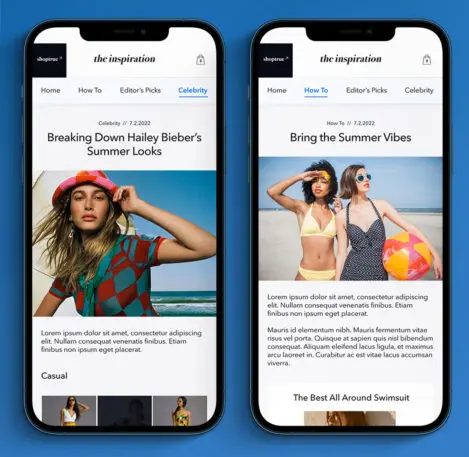
“Shoppers don’t really care where the inspiration came from, whether it was from an algorithm or a person that put a collection together,” says Evans. “We’re trying to do both, to put the shopper in the driver’s seat and give them tools to use as they like.”
Users can make their own stores public, so others can take a peek at their taste. Or they can choose to keep their stores private. The algorithm will also learn your fit and size preferences over time, recommending items that are more likely to be a flattering fit. Evans and his team have been working hard on Shoptrue for more than a year, but he acknowledges that it will take time to perfect the technology. “Startups are hard, and there are a lot of things that have to go right for it to take off,” Evans says.
In the end, one of the biggest challenges may simply be to win consumers’ attention in the very crowded world of e-commerce, where buzzy startups pop up every day alongside enormous marketplaces like Amazon and Farfetch. Shoptrue will have to convince us to give the platform a try—and keep us browsing for long enough to learn our tastes.
Recognize your brand’s excellence by applying to this year’s Brands That Matter Awards before the early-rate deadline, May 3.
